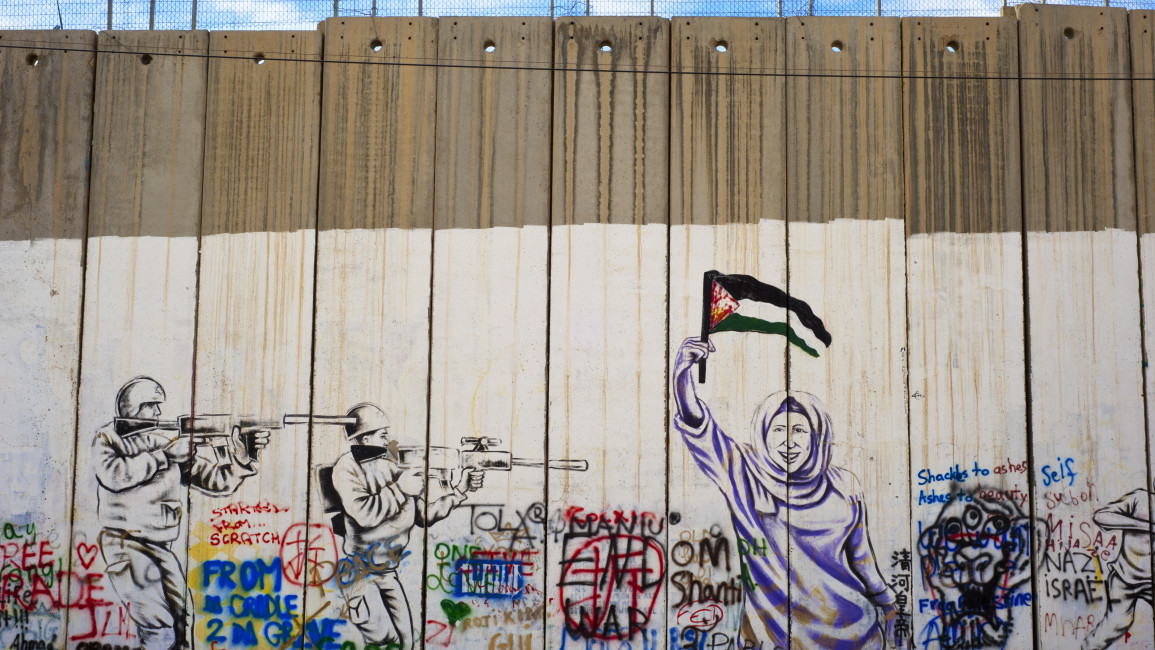
Washington ignores Amnesty Israel 'apartheid' report at its peril
By blatantly ignoring the findings of human rights abuses against Palestinians as the United States did this week upon the release of a seminal report by Amnesty International, Washington is ultimately emboldening bad behaviour while further entrenching itself in Middle East security crises.
Here’s why.
Amnesty’s latest assessment on Israel’s treatment of the Palestinaians, deemed a “crime of apartheid,” stems from a five-year analysis of Israeli civilian and military law.
The organisation reached the same conclusion as Human Rights Watch and Israel’s own main human rights organisation, B’Tselem (Israeli Information Centre for Human Rights in the Occupied Territories).
"Some rules are for our partners — and an entirely different standard for our adversaries. This selectivity instrumentalises and undermines the very concept of human rights"
The Israeli government has presented no counter argument to these findings, except false accusations of anti-Semitism.
The 274-page report has also further embarrassed the United States, which also rejected Amnesty’s report, all the while regularly citing Amnesty and HRW when those organisations issue reports on the human rights abuses of countries not aligned with Washington.
This episode further highlights two ways in which this approach undermines US national security.
First, the United States loses further credibility on human rights when it applies it selectively. Some rules are for our partners — and an entirely different standard for our adversaries. This selectivity instrumentalises and undermines the very concept of human rights.
Israel's attempts to justify its appalling record on the Palestinians is becoming more indefensible. @emadmoussa lays out why https://t.co/Gk0oir9H46
— The New Arab (@The_NewArab) February 9, 2022
It is not a value to be upheld but a stick to use against those we don’t like, while turning a blind eye to partners such as Saudi Arabia, Israel, and other systematic human rights abusers.
Second, Biden’s Mideast strategy is increasingly defined by the goal of “strengthening alliances.” Biden views America’s security partnerships as a critical asset in the competition against China. But two negative and mutually reinforcing developments follow from this approach:
To begin with, US partners will behave increasingly recklessly and in contrast to American values as they correctly perceive Washington as having given them a permanent carte blanche, and because they calculate that the US — because of the China competition — cannot afford to be tough on them.
Case in point: Israel’s de facto annexation of Palestinian territory and elimination of any viable two-state solution is partly the result of decades of American deference to Israel even though the US itself has defined a two-state solution as central to American interests.
Moreover, Washington will be forced to more frequently defend the worsening behaviour of its partners. Whatever double standards we saw in the past, it is likely to get substantially worse going forward. Forget the rhetoric about centering human rights or pursuing more prudent goals.
Ironically, it is difficult to see how this approach, which fuels recklessness among US partners and makes them even greater burdens rather than assets to Washington, ultimately strengthens America’s position vis-a-vis China. Rather, this will further entangle the United States in the problems and conflicts these partners have started or are embroiled in.
The day America will come home from the Middle East is being pushed further and further away.
Trita Parsi is an expert on US-Iranian relations, Iranian foreign politics, and the geopolitics of the Middle East. He has authored three books on US foreign policy in the Middle East, with a particular focus on Iran and Israel.
This article originally appeared on Responsible Statecraft.
Have questions or comments? Email us at: editorial-english@alaraby.co.uk
Opinions expressed in this article remain those of the author and do not necessarily represent those of The New Arab, its editorial board or staff, or the author's employer.





 Follow the Middle East's top stories in English at The New Arab on Google News
Follow the Middle East's top stories in English at The New Arab on Google News


